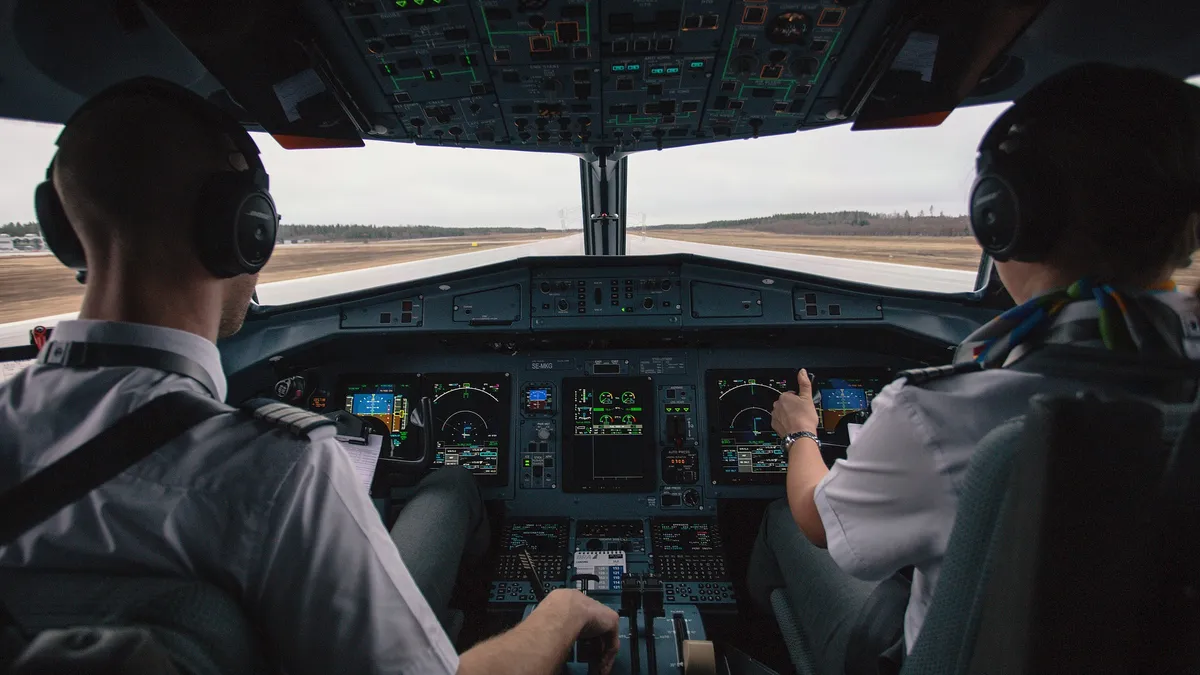Dive Brief:
- Purple Runway —a FedEx Pathways Program — is “designed to ensure a full pipeline of pilots for us and the industry at large,” CEO Frederick W. Smith said in a March speech.
- The program will be run in conjunction with FedEx feeder operators Mountain Air Cargo and Empire Airlines, creating a pipeline of experienced pilots to FedEx itself.
- Global air cargo demand, especially in e-commerce, is growing while the pilot pool dwindles due to retirements, training costs and stringent hours-of-training rules.
Dive Insight:
While we hear plenty about the shortage of truck drivers, land transportation specialists aren't the only ones in need of help. As many senior pilots reach the mandatory retirement age of 65, they aren't being replaced. Why? Training is especially expensive, possibly as much as $100,000, and, in the U.S., the Federal Aviation Administration (FAA) has mandated additional certification and higher flight-time requirements for prospective pilots.
Meanwhile, demand has grown in the global freight market. According to the International Air Transport Association (IATA), global demand grew by 9%, a huge increase over the 3.6% rate of 2016. It was the strongest performance since the global financial crisis of a decade ago.
To meet this need, FedEx Express has announced a new pilot development program, Purple Runway — A FedEx Pathways Program to help ensure it has a pipeline of trained and qualified pilots.
FedEx Express, along with its feeder operators at Mountain Air Cargo and Empire Airlines, will have a collaborative outreach and engagement program to promote student interest in aviation careers at select colleges and universities, beginning with Delta State University in Cleveland, Mississippi, and then other universities and aviation colleges around the country to educate potential pilots and other students interested in an aviation career.
It’s a good start because global e-commerce, of course, is booming and consumers don’t want to wait for their orders to sail across the oceans. In its World Air Cargo Forecast 2016-17, Boeing projected e-commerce to more than double over the next five years, growing from $1.7 trillion to $3.6 trillion by 2020.
The Asia-Pacific region is the fastest growing e-commerce trading bloc, with China at the forefront. China is the world’s largest e-commerce market with $590 billion of goods sold in 2015. Boeing forecasts that by 2020, China’s e-commerce market will be bigger than the combined existing markets of the U.S., Britain, Japan, Germany, and France.
Someone has got to fly those goods across the Pacific.














